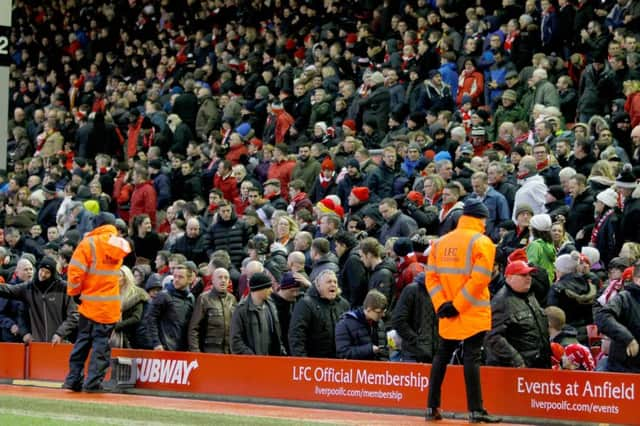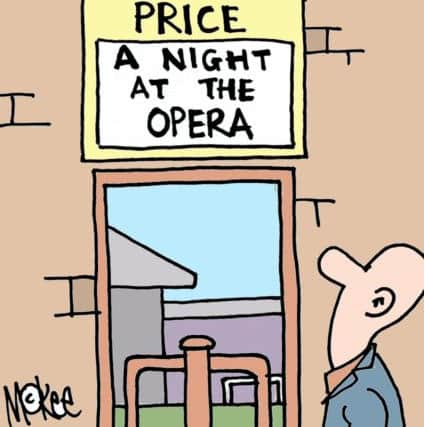Column: Only one place to point the finger over ticket prices


Hence TV companies get a good kicking for pumping in a huge amount of money that creates frenzied competition for the best players. Then we turn on those “greedy” players and their agents for holding clubs to ransom... when really, for me, the greedy, cash guzzling clubs are most to blame for the whole lot of it.
Who negotiates the various lucrative TV deals? Who has sold away control of fixture dates and kick-off times? Who has prioritised TV match fees over filling grounds? Who has paid the players too much? Who has consistently put up admission prices to help pay those wages?


Advertisement
Hide AdAdvertisement
Hide AdEvery finger points in one place and that’s five so far, all the fingers of one hand. Accepting that supporters themselves are not entirely blameless, with vocal minorities stampeding unrealistic expectations, it’s obvious that the football industry (the Premier League and, to a lesser extent, the Football League) is itself responsible for the backlash it now faces from customers. And not before time.
The match day walk-out of 10,000 Liverpool fans, forcing a climb down from the club on plans to charge £77 for some tickets, has finally focused minds in boardrooms and at the top of the game. Clubs are queuing up to offer concessions – if not yet collectively doing the right and proper thing when it comes to the Premier League netting £5 billion plus for its current package.
And doing that “proper thing” is wholeheartedly supported by one of the leaders of the players’ union, whose top-end members have been the ones gaining most from the spiral.
In a chat with me last week, PFA chairman Ritchie Humphreys asked a sane and simple question: “How about a club saying ‘we’re going to lower prices?’”


Advertisement
Hide AdAdvertisement
Hide AdBlimey, Sunderland now have. With precious words like “brand” and “image” at stake, it’s almost funny to watch a scramble for the moral high ground. Morally, it is beyond argument that clubs have to respect the customer rather than putting even more cash into players’ pockets.
Former Sheffield Wednesday forward Humphreys, still a player at 38 for Chesterfield, added: “I followed the Liverpool story. The price was out-pricing the football public. It’s great that supporters have a voice and even better that Liverpool have listened to it.”
You hesitate to highlight or compare the Sheffield clubs on this because it is a national issue. All I will say is that Sheffield United’s remarkable upkeep of crowds around 20,000 has to be testament to their pricing policy and Wednesday’s new owner has clearly learned from the attendance-limiting furore over match day charges in his first full season. His introduction of a revolutionary three-year ticket actually got in smartly ahead of the national outcry.